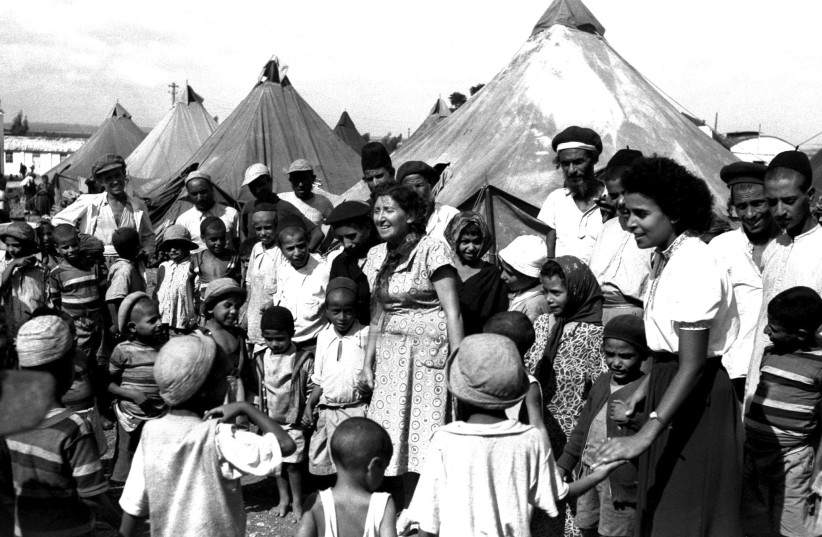The gravesite of an Israeli child of a Tunisian family is set to be opened on Monday to conduct a DNA test which will be administered to determine a genetic link to the family.
Despite the Health Ministry claiming the grave belongs to a Yemenite child, the child is reportedly the son of a Tunisian family that made Aliyah in 1948, according to Maariv.
The child, reportedly named Uziel Houri, was born in 1952 and became ill at approximately one year old.
Houri was taken by welfare services to a hospital where he received treatment. However, shortly after the child was taken from his family, he was pronounced dead at the hospital and was buried in the Segula cemetery in Petah Tikva, central Israel.
The DNA test will be conducted as part of ongoing attempts by Prime Minister Naftali Bennett's government to uncover details on the Yemenite Children Affair.

The Yemenite Children Affair refers to the disappearance of mainly Yemenite, North African and Balkan babies of Jews who made aliyah from 1948 to 1954. Over 1,000 babies were taken from their families and put up for adoption, usually by established Ashkenazi families that were said to offer the children a better future.
In many cases, the families were told their child had died, even though they didn’t see the body or a place of burial and or receive a death certificate. Some came to believe the children were, in fact, kidnapped and adopted by Ashkenazi families, both in Israel and abroad.
In December of last year, a drafted Health Ministry report, which detailed the Israeli healthcare system's role in the infamous abductions, was leaked by Haaretz.
The drafted report did not give new testimonies or documents and is simply a review of already published and collected material. However, it was the first admission by an Israeli ministry in an official document depicting involvement in the scandal.
In February, Interior Minister Ayelet Shaked sent a letter to Health Minister Nitzan Horowitz requesting the release of a document detailing the involvement of Health Ministry officials in the Yemenite Children Affair, which she called a "bleeding wound in the heart of Israeli society."
